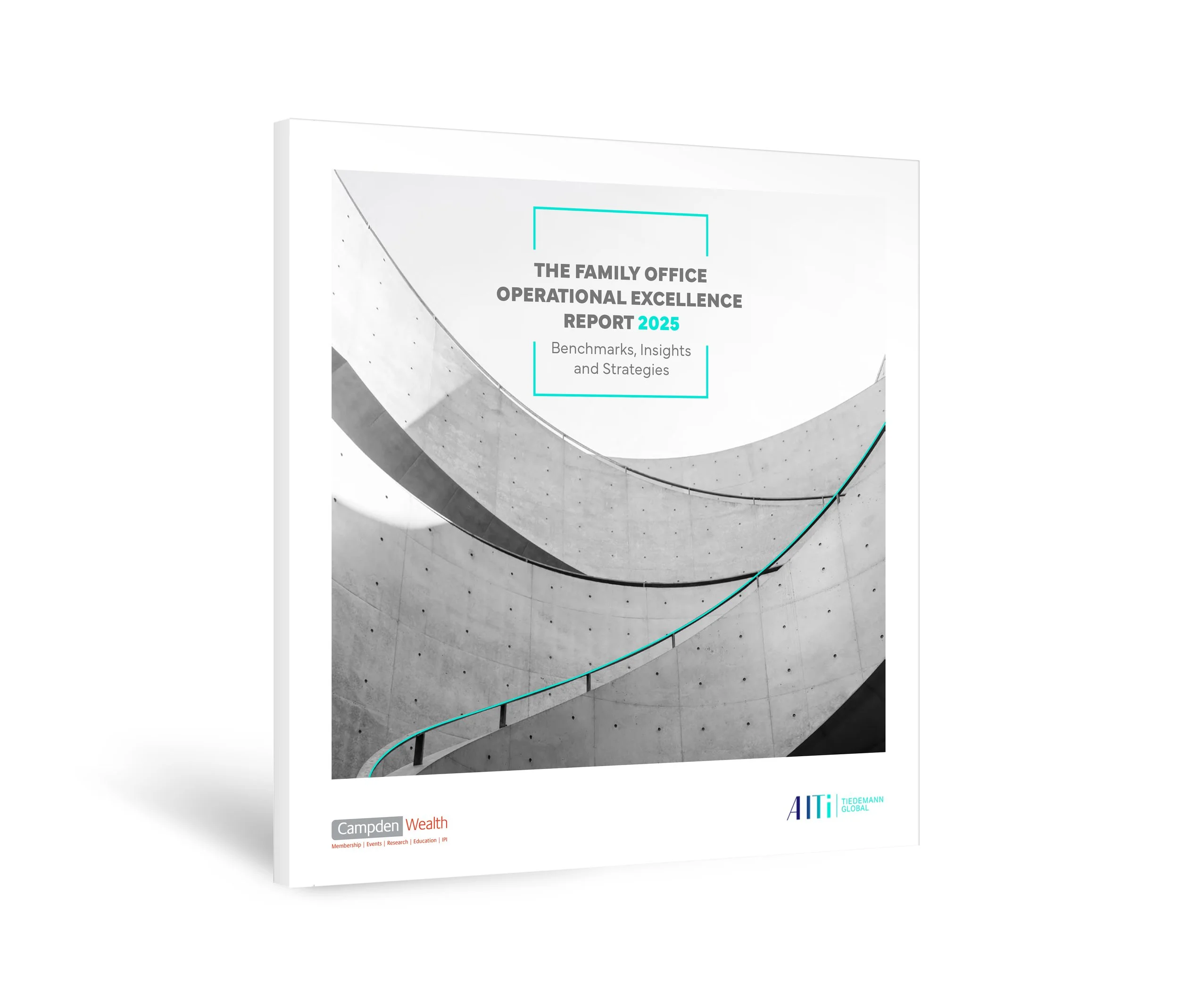Campden Wealth’s 2025 Family Office Operational Excellence Report uncovers shifting priorities
By Kristen Oliveri
Top Takeaways from Adam Ratner, Campden’s director of research:
Nearly half of family offices (48%) have expanded their services, especially around family engagement and governance.
Talent remains the biggest challenge. Over 80% of family members are happy with their teams, but finding and keeping the right people is tough.
More than half (57%) of families now live across borders, and supporting these non-resident members, particularly with tax, investment, and estate planning is a top priority.
Campden Wealth’s Family Office Operational Excellence Report 2025 reveals an important shift in how family offices around the world are evolving. Produced in partnership with AlTi Tiedemann Global, the annual study surveyed 146 family offices across North America, Europe, and Asia.
So, what’s changing? For starters, family offices are expanding their service offerings, not just to protect wealth, but to better engage all family members and implement stronger governance structures to ensure long-term sustainability. As the report notes, “As families grow and diversify, reaching consensus on the overarching purpose and service model becomes more challenging.”
In other words, traditional governance frameworks aren’t cutting it anymore. Families today are looking beyond financial oversight and seeking support that includes medical assistance, cyber and physical security, and even concierge-level services tailored to their lifestyles.
Talent, however, remains a persistent challenge. Despite these growing needs, finding and keeping top-tier professionals continues to be a hurdle. According to the report, 70% of family offices are struggling to hire, while 65% express concern over retaining key staff, especially as experienced leaders retire or transition out.
Global reach is another layer of complexity. With more than half of the families surveyed spanning multiple countries, supporting non-resident members has become a top priority. That means navigating intricate cross-border tax planning, estate structures, and investment strategies. Still, fewer than one-third of family offices identified family-related services for these members as a priority, despite rising concerns around family dynamics, premarital planning, and governance limitations tied to local legislation.
To read the full report, you can download it HERE.

